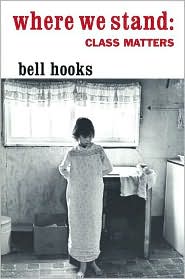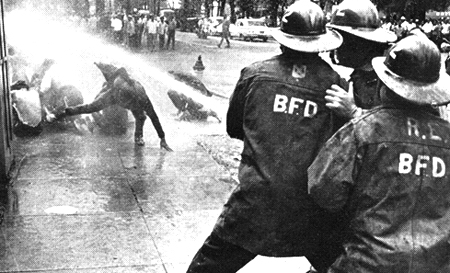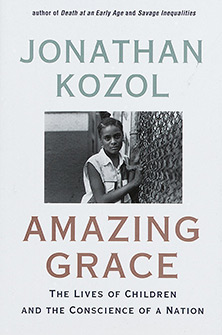I’m not quite sure how to properly label this post so I’m
leaving it blank. I think this will be somewhat of a reflection post, even
though it’s not on our list of post formats to choose from.
I found the two chapters assigned to us from Barbara Jensen’s
Reading Classes: On Culture and Classism
in America to be quite…interesting. I definitely learned a few new things
that I thought were fascinating (like the entire section on language), but
there were also a few moments where I just couldn’t completely feel (to know!) what she was saying.
Before I completely dive in I’d like to first just quote her
definition of class and classism, mostly for my own benefit so that I have her
definition written in a somewhat permanent space, but also for my peers’
benefit for anyone who has not yet been able to read the text or who simply
missed it:
Class is an
injustice that says some Americans deserve much more time, leisure, control,
and far more financial reward than others. Classism is the set of myths and beliefs that keep those class divisions
intact, that is, the belief that working class cultures and people are
inherently inferior and that class itself demonstrates who the hardest workers
and the rightful winners are (31, emphasis Jensen’s).
I found her definition of class/classism to be quite
interesting because it differs a bit from what we’ve heard before. Not so much
the classism part, but definitely the class definition. With a quick glance it
would also seem as if her definition of class was created simply to bolster her
definition and argument surrounding classism.
But, if we are to think about it a little longer, it becomes much clearer that
her definition of class is not there simply to serve the purpose of her
argument about classism but rather to highlight the inequalities inherent in a
system that stratifies in such a manner. Class is hierarchical, because of that
ordering it means that some folk will be on top (superior) and others will be
on the very bottom (ultimate inferiors). To have, and embrace, such a system
that categorizes in such a way is to embrace inequality. That is what
capitalism does. It produces, and embraces, inequalities. It thrives
on inequality. For if there were no lower classes then how could there be a
capitalist class? The capitalist class needs the working class because they
need a class to manipulate, exploit, and dominate.
Later in the same chapter (“The Invisible Ism”) Jensen goes
on to posit what she believes to be the most “common form of classism [which]
is solipsism, or
my-world-is-the-whole-world”. Of course this is one of the most common, and
pervasive, forms of classism. It is a necessary tool in order to ensure that
class, beyond simple economics, exists. I made a note of this in my last blog
post: colonizers are like viruses. Generalize a bit and switch in “oppressor”
for “colonizer”. The key to ensuring that the life of the oppressor will
continue is to replicate the oppressor’s beliefs in the bodies of those outside
of the oppressing class. The oppressing/dominant/ruling/capitalist class is a
statistical minority! They cannot continue to oppress if they have not caused
others to internalize classist beliefs. In order to insert these new beliefs
the oppressor must erase what once was. If the structure is created to suit the
middle-class, then others have to either adapt or not play the game. In order
to adapt they must shed some of their own identity so that they may take on
some of the oppressor’s identity. This is erasure. Solpsism causes erasure of
identity and deracination.
What I find a bit funny, in an interesting way, is that while
Jensen brings up, and condemns, a concept that brings my mind to erasure, she
somewhat commits the act herself. She continuously mentions “ethnic identity”
or “racial identity” but never really spends any time there. And I don’t expect
her to, but that’s because I am jaded. However, her attempts at inclusion, at
least in these two chapters, often stop after she makes note of “ethnic
identity”. She often continues to make broad-based statements about the
working-class without a true acknowledgment that most of her studies and
observations (or at least the theoretical perspective that she is using to
analyze these observations) are not inclusive of POC. Perhaps there was a
general disclaimer in the introduction section of the book that I may have
missed, as I did not go above and beyond and read more than what was assigned
(although I do try to read introductions/prefaces, but I just did not have the
time).
To give an example, as so far I have mostly been speaking in
generals, let us turn to chapter 3 (“Belonging Versus Becoming”):
For those who
cross the class divide, almost everything about the process asks you to forget
what you knew before. How does one speak of, or grieve, a place that isn’t even
on the map? Invisible, voiceless, unacknowledged—how does one remember what to remember?
(53).
Jensen
had the perfect opportunity at this point to discuss the way in which race is
classed, and the multiple marginalities when it comes to class and people of
color. For people of color crossing class lines even more must be forgotten
(although it is not truly possible). For those whose skin marks them as being
of a lower class even more must be stripped in order to really cross class
lines. And then the question remains as to whether they can ever truly do so. For in the end it doesn’t
matter quite how much agency one speaks with, or whether they can quote Derrida
at length; they will forever walk around with a blatant class marker, one that
cannot simply be unlearned or hidden away back home.
It wasn’t until a bit later in the chapter that the
realization that perhaps Jensen is one of those ‘post-racial’ people popped
into my head (she’s clearly not. She’s simply just not the best at inclusivity,
either). On page 62 Jensen states that “when the working class has organized
for better economic treatment, as it often has in American history, it has done
so in spite of deep ethnic, geographic, gender, and color differences, forging
a new and larger sense of ‘us’”. Now…I just didn’t know how to take that. It
seems purposefully naïve. And through that naivety she also erases the
difficulties of past mass class movements where “togetherness” just wasn’t
happening, or at least wasn’t happening without a huge fight and many deaths
and even more jailed. It’s as if she is purposefully false-remembering the
past, and unfortunately by doing so she commits an act of erasure. I’m not the
most well-read on class movements but recently I have been reading Robin D.G.
Kelley’s Hammer and Hoe: Alabama
Communists during the Great Depressing. At times reading about the ways in
which the White southerners, those of whom would benefit very much from the
Communist Party and others like them at the time, were filled with such
spiteful hatred just pained me. There was no “us” in their minds, at least not
a broader class “us”. That is not to say that the Alabama Communists were not
able to come together…eventually. But to put it as simply as “when the working
class has organized…in spite of deep ethnic…and color differences, forcing a
new and larger sense of ‘us’” erases the difficulties and actual BLOOD shed to
make it happen. Of course, there is only so much room in a book so I may be
unfairly criticizing Jensen here.
My last critique is less of a critique and moreso genuine
confusion. How is it that Jensen could attribute the epistemological framework
of what is essentially “connected knowing” (what she calls “emotional”
knowledge/wisdom) to being a phenomenon of the working-class? It just seems to
not account for things like socialized ways in which the genders are taught to
learn. In “Procedural Knowledge: Separate and Connected Knowing” Mary Field
Belensky, et al., posit that:
Separate and connected
[are used] to describe two different conceptions or experiences of the self, as
essentially autonomous (separate from others) or as essentially in relationship
(connected to others). The separate self experiences relationships in terms of “reciprocity,”
considering others as it wishes to be considered. The connected self
experiences relationships as “response to others in their terms” (236).
Does
this not sound quite familiar to the ways in which Jensen separates the epistemologies
of the working and middle class? And yet Belenky et al stated that “separate
and connected knowing are not gender-specific. The two modes may be
gender-related. It is possible that more women than men tip toward connected
knowing and more men than women toward separate knowing” (236). This is due to
socialization. Once things are engrained in us enough they begin to seem
natural (they are naturalized). Perhaps
this, instead of class differences, explains why the couple she mentions on pg
60 were having such trouble. The husband wanting the wife to use more words and
just be explicit with her feelings/thoughts whereas the wife is communicating but in the way that she
has been taught to communicate. Maybe it was a coincidence that Jensen used the
genders in such a way for this example, but by doing so it makes it harder to
see whether the wife communicates in such a way because she was raised working
class or because she has been socialized to be a connected/emotional
learner/communicator because of her gender.
Just
some things to think about! I did enjoy this text. So far this is my favorite
reading of the semester.
Work Referenced
Belenky, Mary F.,
Blythe McVicker Clinchy, Nancy Rule Goldberger, and JillMattuck Tarule.
"Procedural Knowledge: Separate and Connected Knowing."Just Methods: An
Interdisciplinary Feminist Reader. By Alison M. Jaggar.Boulder, CO:
Paradigm, 2008. 235-47. Print.
Jensen, Barbara.
Reading Classes: On Culture and Classism in America. Ithaca: ILR,2012. Print.
Kelley, Robin D. G.
Hammer and Hoe: Alabama Communists during the GreatDepression. Chapel
Hill: University of North Carolina, 1990. Print.








